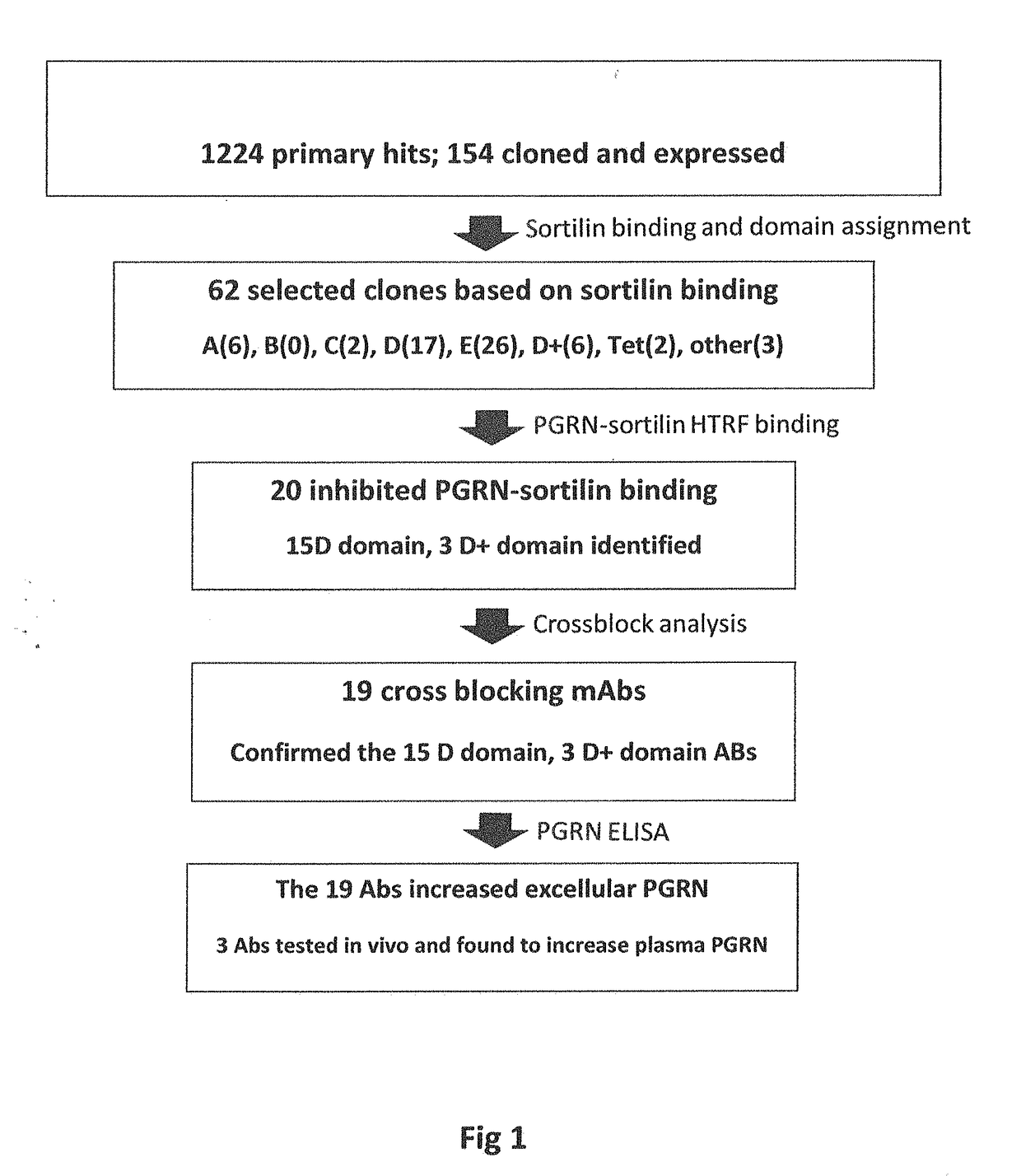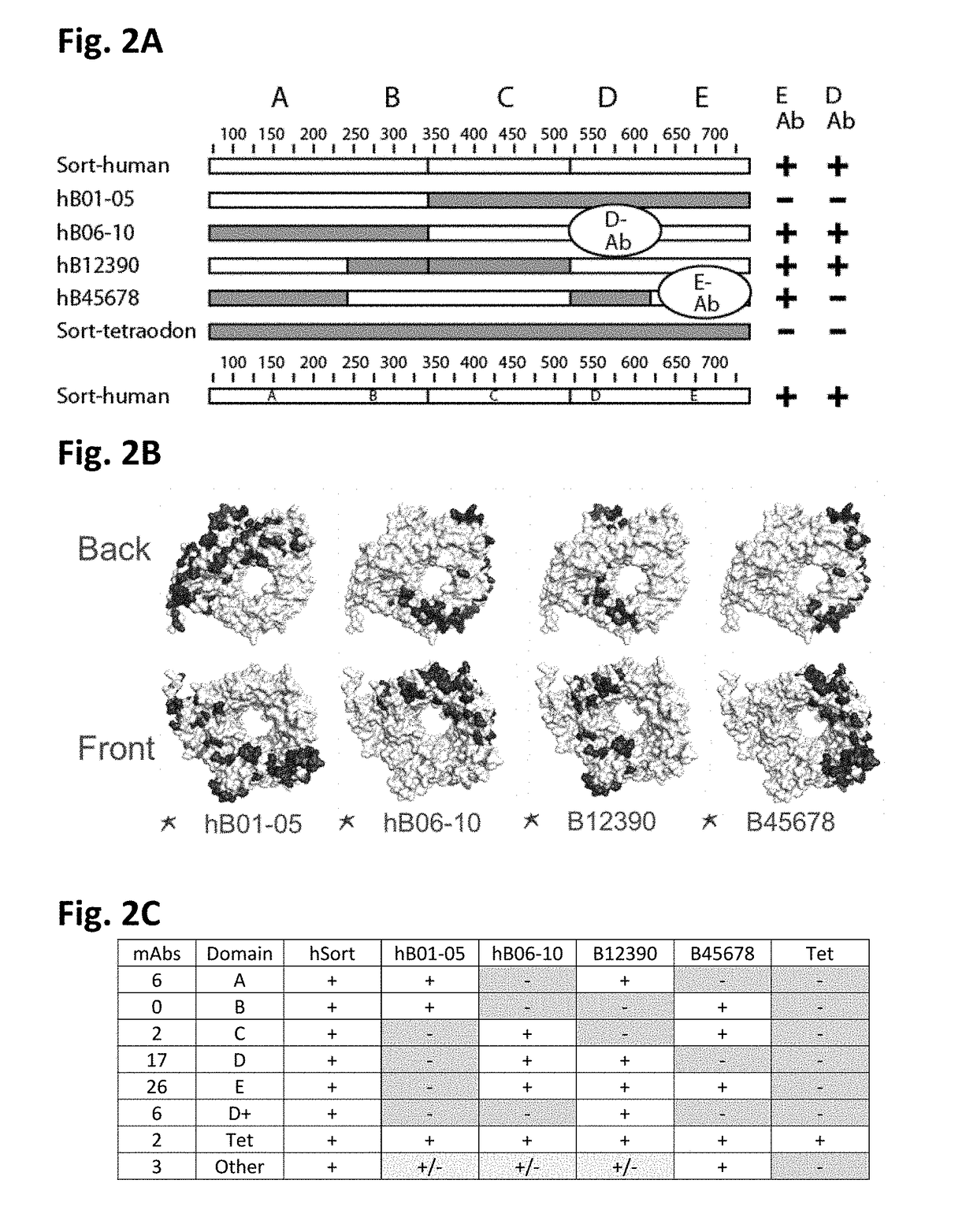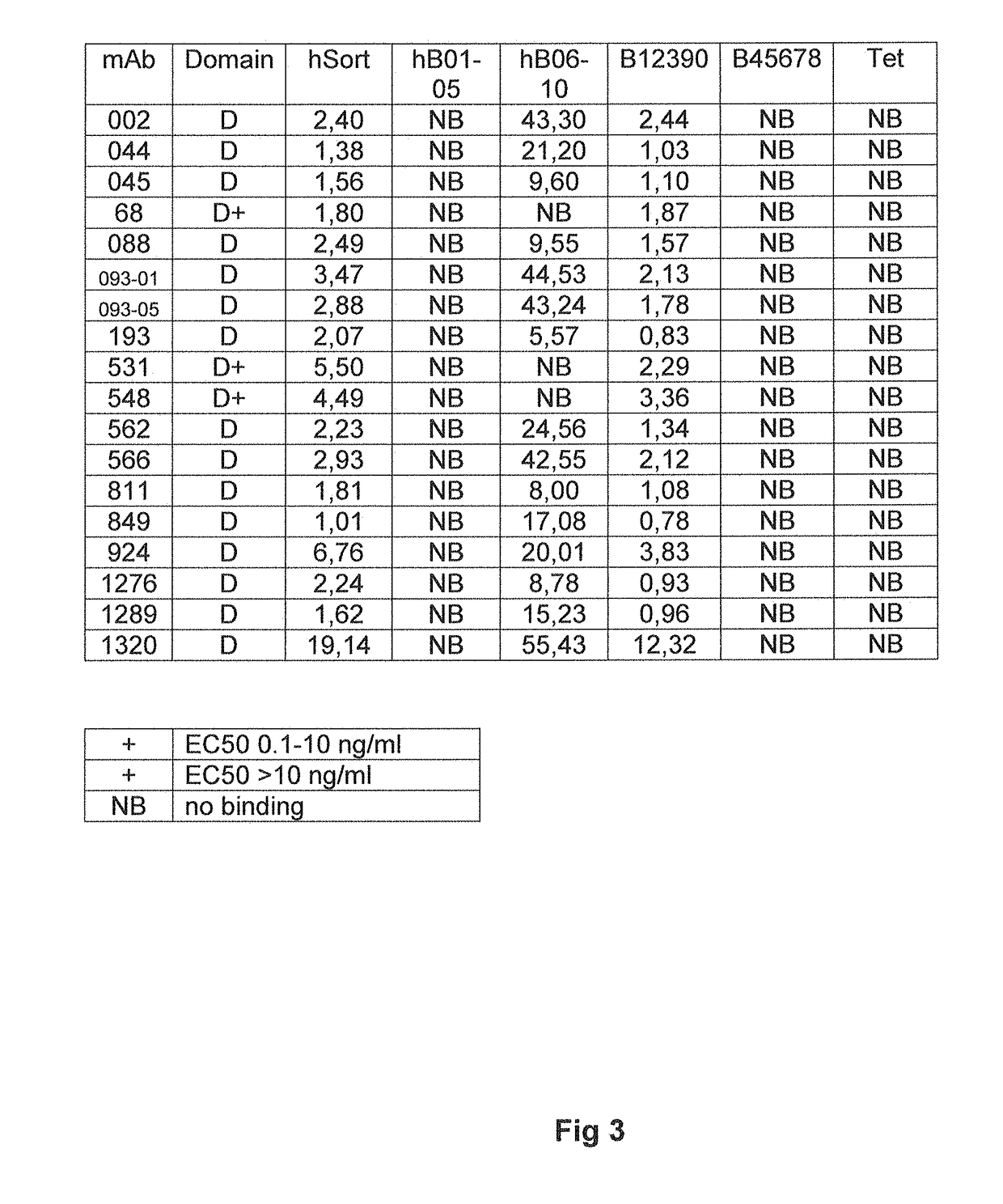Agents, Uses and Methods for Treatment
a technology of monoclonal antibodies and anti-sortilin, which is applied in the field of monoclonal anti-sortilin antibodies, can solve the problems that no disease-modifying treatment options are available for ftd, and achieve the effects of increasing pgrn levels, increasing extracellular pgrn, and increasing pgrn levels
- Summary
- Abstract
- Description
- Claims
- Application Information
AI Technical Summary
Benefits of technology
Problems solved by technology
Method used
Image
Examples
embodiments
[0230]As would be apparent from the text and the Examples the invention further relates to the below embodiments:[0231]1. An antibody, or an antigen-binding fragment thereof, capable of specifically binding to Sortilin and inhibiting binding of PGRN to Sortilin.[0232]2. The antibody, or antigen-binding fragment thereof, according to Embodiment 1, wherein the antibody comprises or consists of an intact antibody.[0233]3. The antibody, or antigen-binding fragment thereof, according to Embodiment 1 or 2, wherein the antigen-binding fragment comprises or consists of an antigen-binding fragment selected from the group consisting of: an Fv fragment (e.g. single chain Fv or a disulphide-bonded Fv); a Fab-like fragment (e.g. Fab fragment or F(ab′)2 fragment); and a domain antibody (e.g. a single VH variable domain or VL variable domain).[0234]4. The antibody, or antigen-binding fragment thereof, according to any preceding Embodiment, wherein the antibody is selected from the group consisting...
examples 1-3
Describe the Generation of Sortilin Constructs
[0300]Example 1 discloses the shuffle constructs. Example 2 discloses the expression of sortilin constructs. Example 3 discloses the purification of sortilin constructs.
examples 4-7
Describe the Generation of Sortilin Antibodies
[0301]Example 4 discloses the immunization and the hybridomas. Example 5 discloses the sequence analysis. Example 6 discloses the purification of antibodies. Example 7 discloses the generation of mouse antibodies.
PUM
| Property | Measurement | Unit |
|---|---|---|
| pH | aaaaa | aaaaa |
| pH | aaaaa | aaaaa |
| pH | aaaaa | aaaaa |
Abstract
Description
Claims
Application Information
 Login to View More
Login to View More - R&D
- Intellectual Property
- Life Sciences
- Materials
- Tech Scout
- Unparalleled Data Quality
- Higher Quality Content
- 60% Fewer Hallucinations
Browse by: Latest US Patents, China's latest patents, Technical Efficacy Thesaurus, Application Domain, Technology Topic, Popular Technical Reports.
© 2025 PatSnap. All rights reserved.Legal|Privacy policy|Modern Slavery Act Transparency Statement|Sitemap|About US| Contact US: help@patsnap.com



